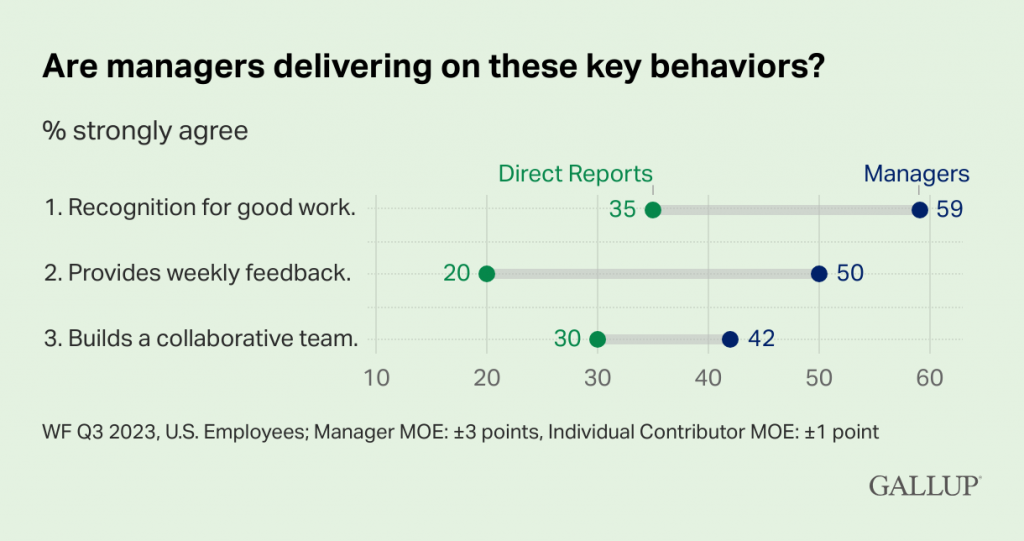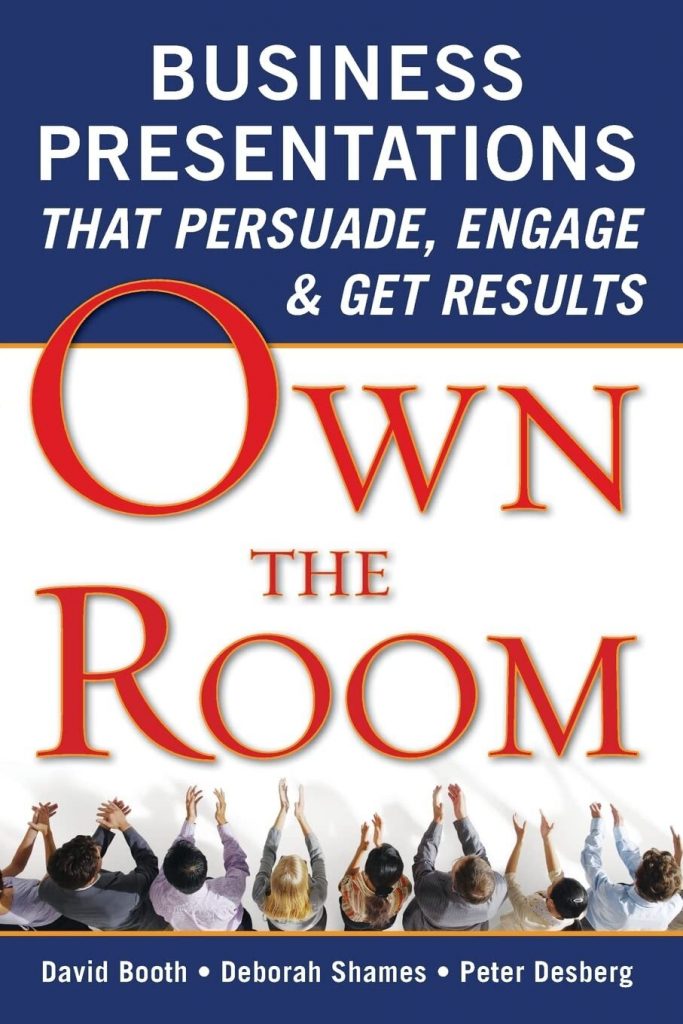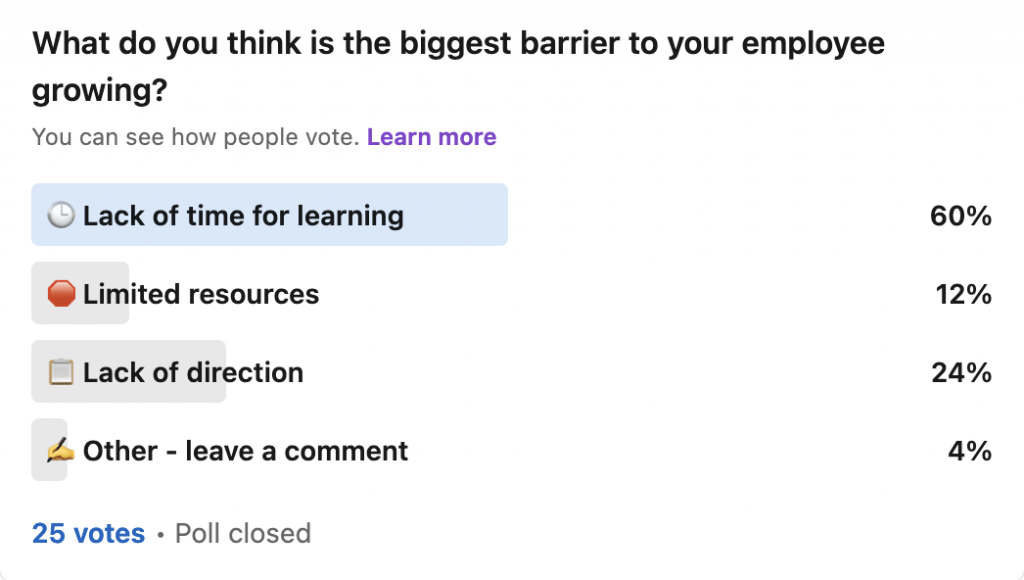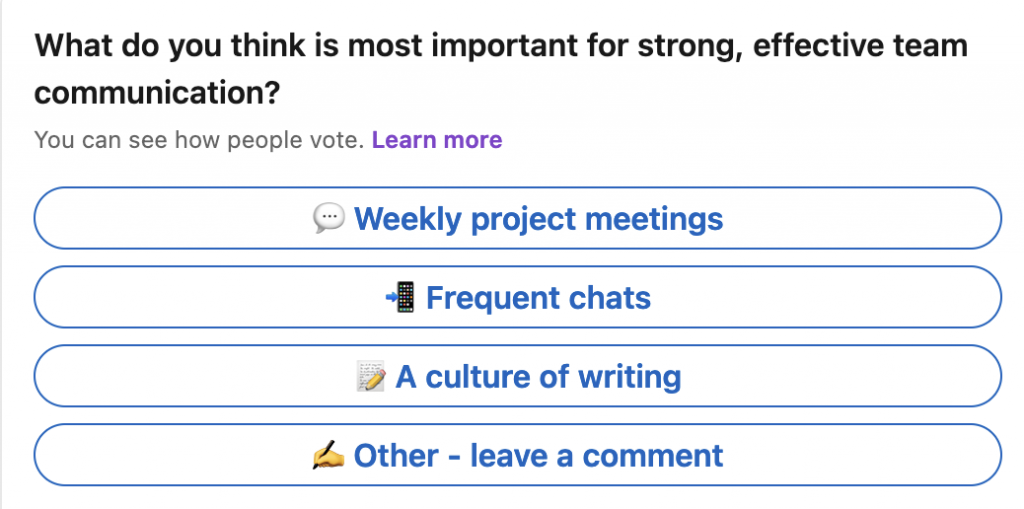What are your goals for 2025? How do you want to grow as a leader?
I’m really glad this year we had Christmas and New Year’s fell on Wednesdays; it’s made for a very quiet, low stress 2 weeks. It’s allowed me to pause, reflect, and plan.
And I’m so glad I’ve been using the 12 Week Year to plan, because it’s meant I got to look back at 4 rounds of goal setting in 2024, and use that and more reflections to set new ones for Q1 of 2025.
You’ll see more of these plans in the coming weeks, so stay tuned…
And for you, if you haven’t really reflected yet, there is still time! Take a few minutes this weekend and really think about how things went for you in 2024 and what you’d like to do differently in 2025.
A little thought and reflection can make all the difference so you don’t just default to what you’ve always done.
Now, let’s dive into this week’s leadership insights, which all center around the inflection point of the New Year.
Table of contents:
- 🥘 Food for Thought on Do You Need a Chaos Monkey?
- 📚 Book of the Month on Improving Your Presentation Skills
- 📰 News & Reports for Managers on Manager Blind Spots for You to Avoid
- ❓ Poll of the Week on Growth and Communication
➡️ Did a friend forward this to you? Get every issue straight to your inbox by signing up here.
Note: This is a preview of our weekly leadership newsletter, Lighthouse Leadership Weekly (LLW).
To get this sent to your inbox every week, along with our latest long form essays on this blog, you can sign up here.

🥘 Food for Thought: Are you ready for a chaos monkey?
I love this clip from Lenny’s podcast about managing calendars:
What does your work calendar look like?
Most leaders I talk to (and polls we’ve run on Linkedin confirm) spend way too much time in meetings. And unfortunately, their team members often get sucked into many of those meetings as well.
That’s why it’s worth considering, especially at the start of the year, whether you and your team would benefit from a chaos monkey.
The benefits should make any leader pause and think. From the clip:
“Now, what's cool about it is it forces you to rethink:
Do we need a recurring meeting, or do we just need one meeting, or do we need a different cadence? That's one thing.
The other thing is it frees up so much craft time…we saw a huge decrease in the amount of time crafters were in meetings.
And then we saw all kinds of other productivity enhancements because they were able to have that flow time and work on things.
We're at something like three hours of meetings per week for an individual contributor at Shopify, which is phenominal.
I think [for] managers…it's six or seven hours per week in order to get aligned and then all the rest of the time is work time.” - Farhan Thawar, VP & Head of Engineering at Shopify
I know quite a few managers who are in 6 or 7 hours of meetings per day. Wouldn't having that many meetings in a whole week (rather than a day) sound better?
Now is the time to unleash a chaos monkey.
Most of your team has been on break. Work has slowed, but is about to ramp back up.
That makes now the perfect time to help you and your team reclaim your calendars.
Dump all those messy recurring meetings and see if anyone really misses them.
This is why Shopify doesn’t just remove all the recurring meetings. They also force a 2 week pause before adding any back.
That gives you a taste of how things go without the meeting. Only after seeing what it’s like for 2 weeks without it do you possibly add it back.
But if you’re only having 3-7 hours a week of meetings, that’s a lot of meetings that must have not been necessary.
Chaos ≠ acting unilaterally.
Sometimes it pays off to be bold as a leader. However, this is not the time to do so.
If you want to try unleashing a chaos monkey at the start of 2025, be sure you communicate it clearly with your team.
Tell them:
- Why you want to do it.
- The benefits they’ll receive.
- How to give you feedback about the change (and any meetings they miss!)
- When you’re doing it (give them a little forewarning!)
Such a message might look something like this:
I want you all to be at your best and as productive as you can be. A key part of that is to not have us waste too much time in meetings.
That’s why on Friday, January 10th, I’ll be implementing a Chaos Monkey on our calendars; I’ll be removing all recurring meetings (except our 1 on 1s).
We’ll then go two weeks without them and see what really needs to come back.
I suspect we’ll find we won’t miss that many of them.
Shopify does this a few times a year and has gotten it down to individual contributors only having 3 hours a week of meetings, while managers have only 6-7 hours a week. We may not do as well, but it’s something to aspire to!
If you have any questions or concerns about this change, please let me know!
Thanks,
YOUR NAME—
This kind of bold action is how you unlock new levels of effectiveness on your team, and break out of old patterns and ruts that are limiting you and your team’s potential.
Will you be trying a Chaos Monkey for you and your team’s calendars? Reply and let me know how it goes or what you’re planning!
📰 News & Reports for Managers
Avoid these mental biases as you start 2025
What you perceive and what your team believes are often two different things. Nowhere is this starker than in these 3 places Gallup identified:

Recognize the Gap in Your Perception vs. Their Experience.
Most managers think they give recognition and provide weekly feedback, yet their team members seem to disagree. When roughly twice as many managers think they do something as their team members do, that’s a problem.
Your team is the ultimate arbiter of truth.
You give recognition, because praise helps your team know what you want to see more of, and you want to motivate them.
You give frequent feedback to help your team improve and let them know where they stand.
You build a collaborative team, because that means your team will work better together, get more done, and drive better results.
But if you THINK you are doing those things, but your team disagrees, then you’re failing. What you THINK is not the same as getting results.
Close the Gap by Taking Action.
Whether you think you already do enough or not, it’s the perfect time to set a resolution to do more. Start building a habit this week of taking action in these 3 areas:
- Recognition: Try to find at least 1 thing you can praise every one of your team members for this week. (Remember there are dozens of ways to do it)
- Feedback: Set aside some time and come up with 1 piece of feedback you go over with each of your team members in their next 1 on 1. This spreads out when you need to come up with the feedback, and a private place to go over it in detail. (And here’s how to give great feedback)
- Collaboration: Building a collaborative team happens one brick at a time. Over the next couple of weeks, start looking at each of your team’s bricks:
- Ask your team in their 1 on 1s how they think you can improve your collaboration.
- Take 5 minutes after each of your big meetings with your team to reflect on how collaboration went, and what you’d want to try differently next time.
- Consciously work to create more psychological safety on your team going forward.
None of these things happen by accident. In fact, the delusion most managers have happens exactly because they overestimate their existing efforts.
We’re all guilty of that at times, but now is the time to change it.
How will you take action in January to ensure your actions match the caliber of leader you believe you are?
📚 Book of the Month
One of the top fears that many people have is public speaking.
There’s something about getting up in front of a crowd that spooks a lot of people, so if you’re one of them, know you’re not alone.
Yet, public speaking is a skill like any other. You can conquer your fear and become a masterful speaker.
And if you want to advance in your career, it’s a skill that you’ll have to master. The higher you rise in an organization, the more important presentation skills become.
That’s why this month’s Book of the Month is all about helping you conquer this fear, or simply level up in an area that will help you go far in your career.

Own the Room: Master Public Speaking and Presentation
What I love most about this book is that you’re really getting 3 books in one. The book was co-authored by a film director, psychologist, and actor.
That means you get perspective on how speech, your presentation, and your body language all impact your message getting across from someone who thinks about how the brain works, someone who lives in front of a camera for a living, and someone who tries to make others look their best on camera, too.
Their combined perspectives gives you a clear picture of not just what to say, or how to say it, but also key movements, pumping yourself up beforehand, and a lot more.
I found the book started a bit slow, but by the end, I had dog-eared dozens of pages and marked up many more than I ever thought I would. It was super practical, and gave me things I was able to try in my next presentation and see that yes, they really do work.
So join us in improving your public speaking and presentation skills by picking up a copy of Own the Room here.
❓ Poll of the Week
Last week, we ran a poll asking about why your employees may struggle to grow. And there was a clear winner:

It’s so easy to have your week fill up with meetings, tasks, and projects. It’s not surprising then that your team often feels the same way, and then never gets around to growing.
That’s why as a leader, it’s important for you to set your team up for growth the easy way:
- Intentionally give them projects and tasks that challenge and stretch them.
- Use your 1 on 1s to coach and develop their skills, especially in those challenge area.
- Pair them with mentors who can help them grow as they do their day to day work.
When you do these 3 things, you’ll find that your team does have time to grow, because they’re growing without feeling like they’re finding time to study.
Yet, this requires effort and planning on your part. So keep it in mind as you kick off the new year with your team. A little planning on your part can help make sure your team feels like they are growing and learning, even if time is short.
—
And now this week, we ask you how you think about team communication.

What aspect of communication is most important to you? Where are you focusing your efforts in 2025? Share your view in the poll here now.
Sign up to get this newsletter & our latest blog posts straight to your inbox:




